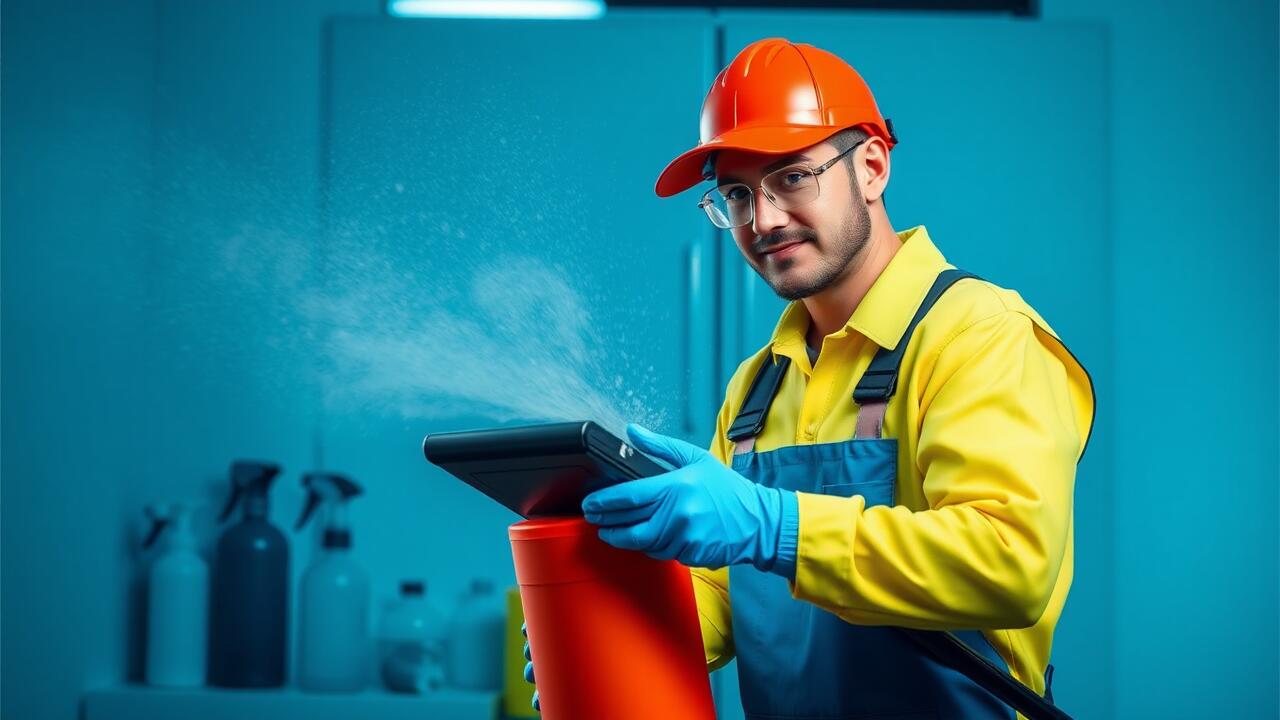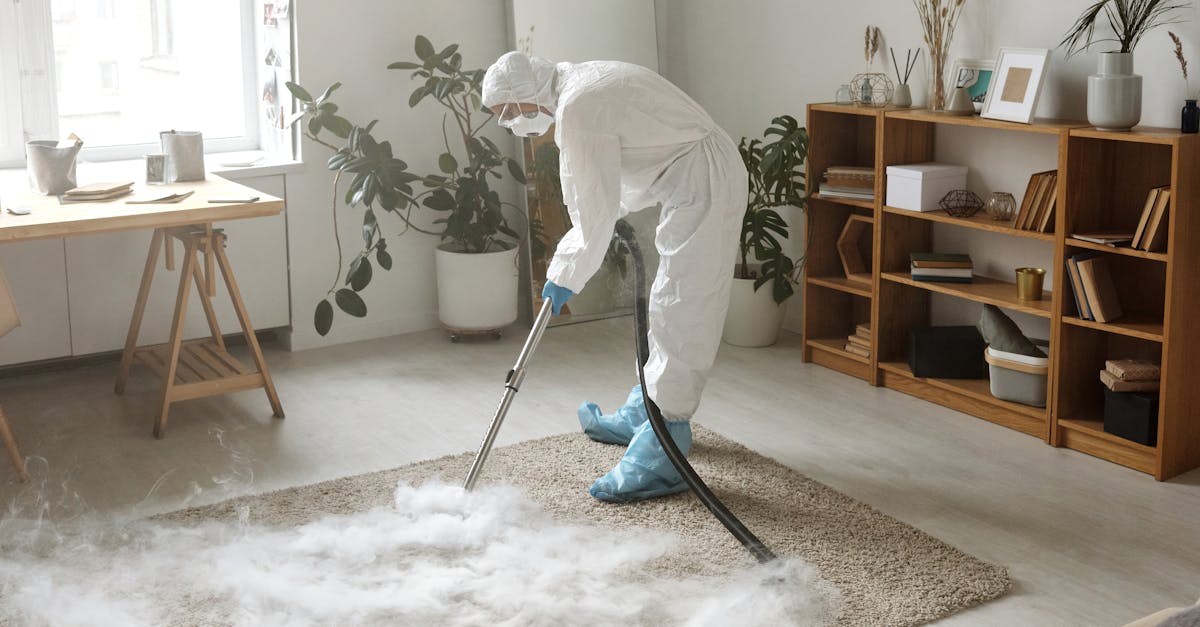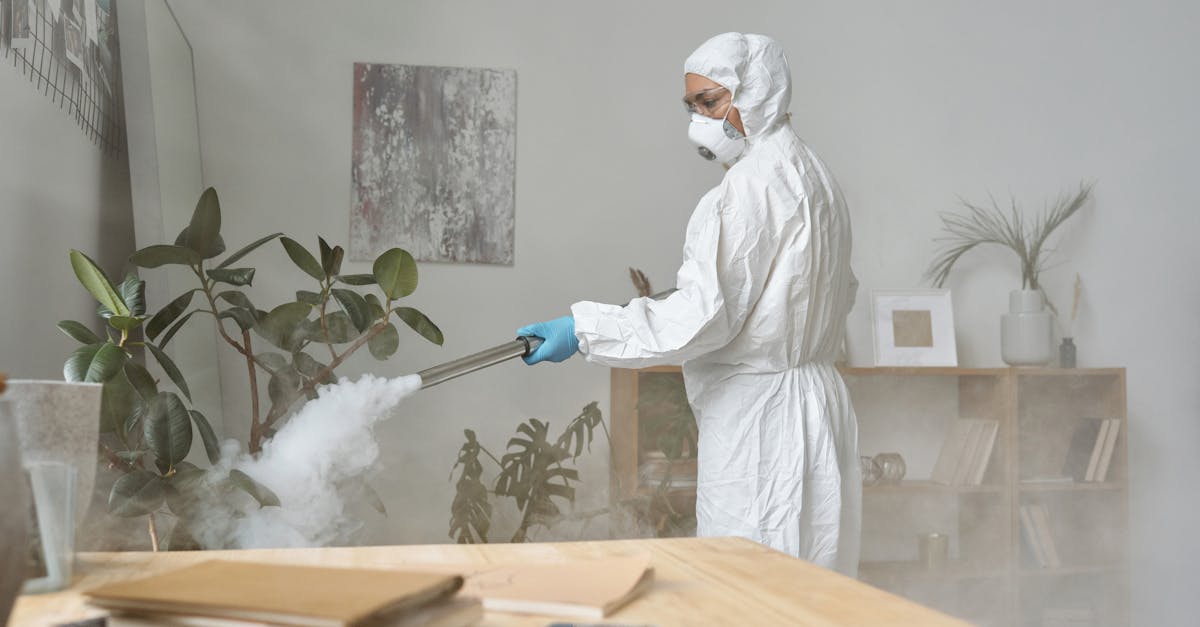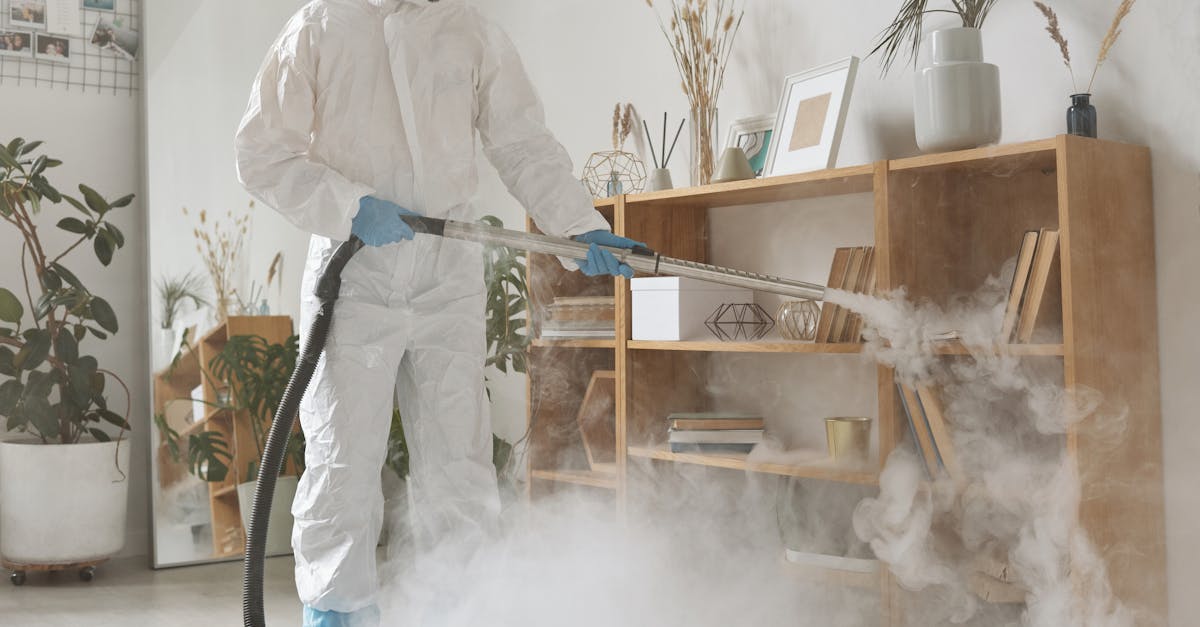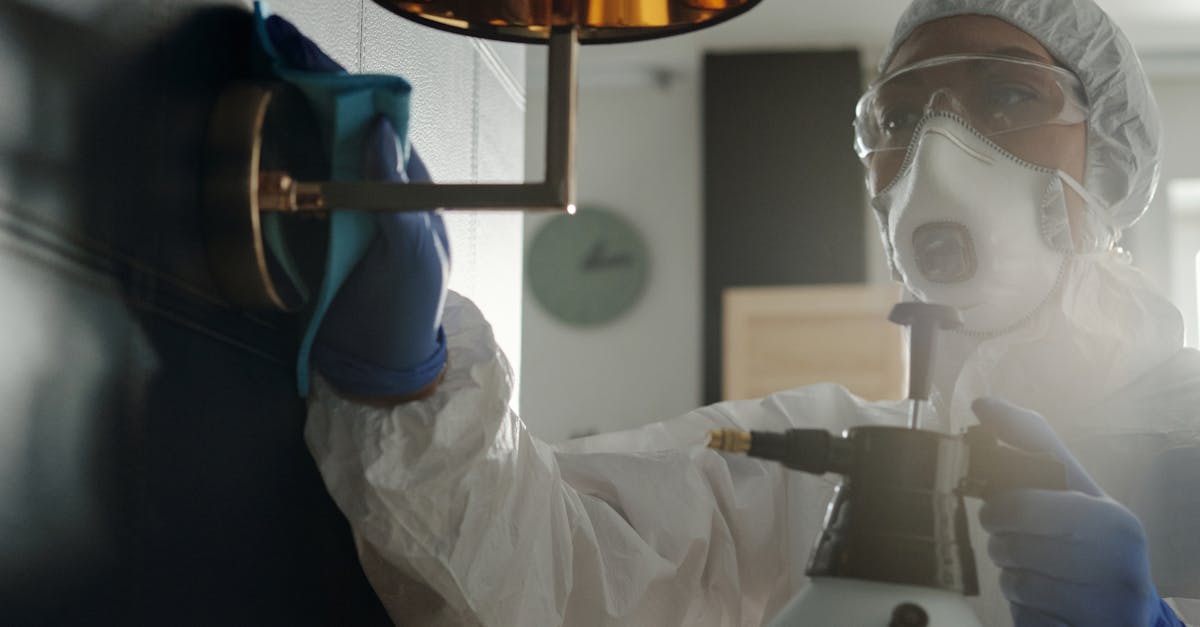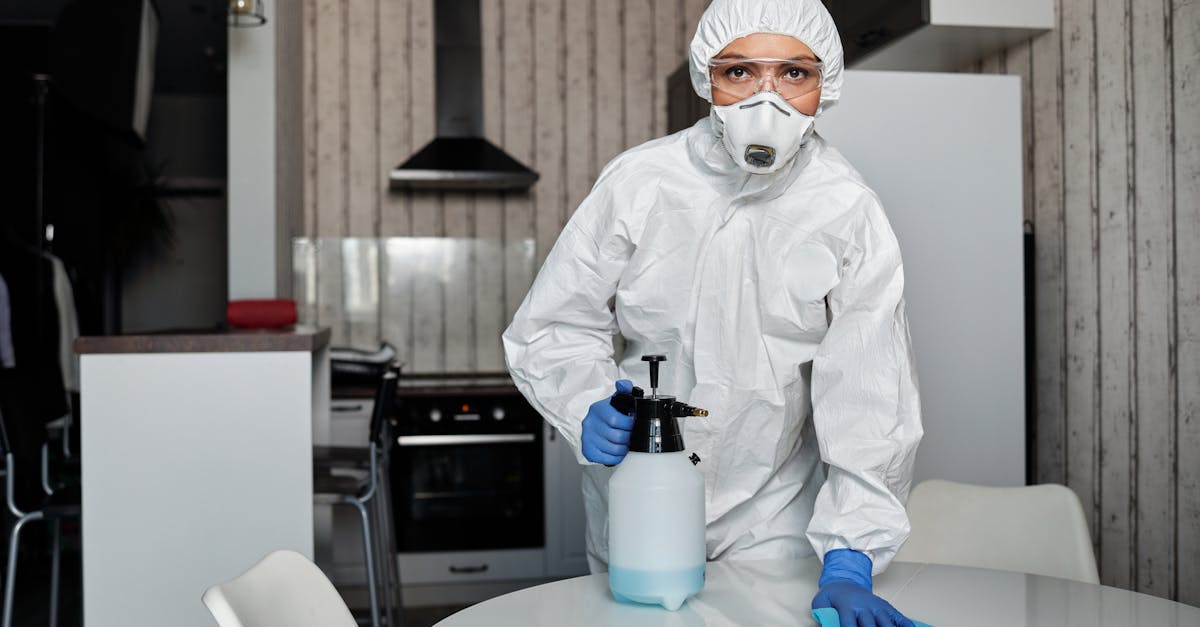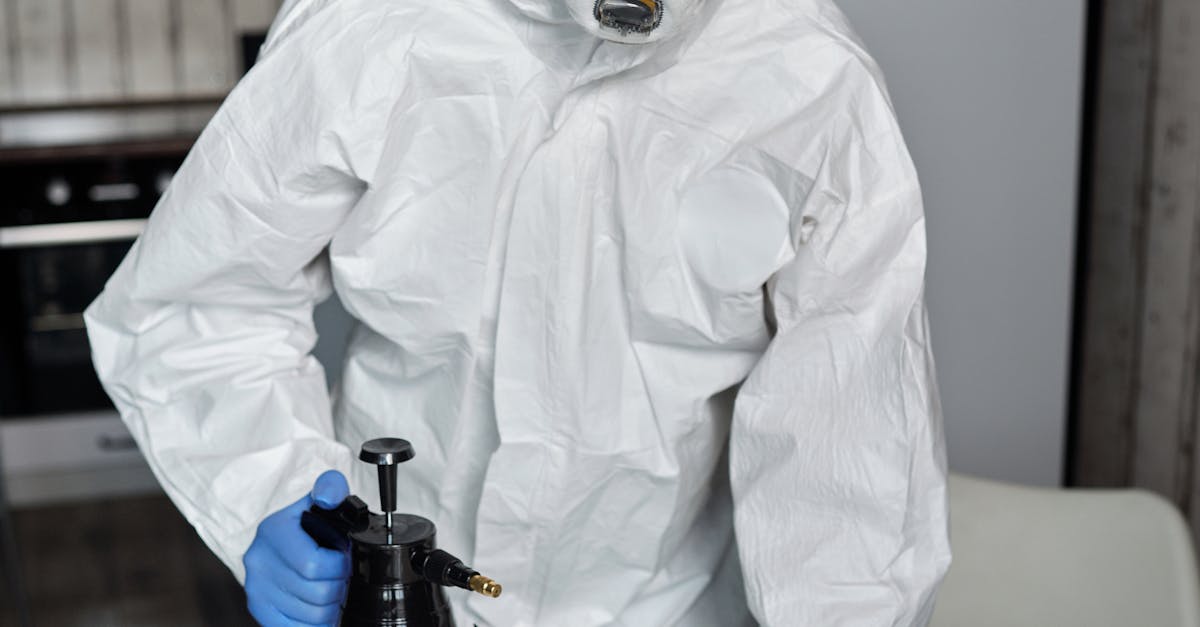
Safety Considerations When Using Bleach
When using bleach as a cleaning agent, safety should always be a priority. The strong fumes can irritate the eyes, skin, and respiratory system, making it crucial to work in a well-ventilated area. Wearing gloves and protective eyewear is advisable to prevent direct contact. Avoid mixing bleach with other cleaning agents, particularly ammonia, as this can produce toxic gases that pose serious health risks. For anyone considering Chemical Cleaning Derbyshire, understanding the hazards associated with bleach is essential before proceeding with its use.
Proper handling and storage are equally important to ensure safety when using bleach. The product should be stored in its original container and kept out of reach of children and pets. High temperatures and direct sunlight can degrade bleach, reducing its effectiveness and potentially leading to hazardous spills. When disposing of bleach, it is advisable to follow local regulations to prevent environmental contamination. Every step taken to ensure safe usage contributes not only to personal safety but also to the health of the environment.
Proper Handling and Storage
When using bleach, proper handling and storage are essential to ensure safety and effectiveness. Always wear appropriate personal protective equipment, such as gloves and goggles, when mixing or applying bleach solutions. Store bleach in a cool, well-ventilated area away from direct sunlight. Ensure that the container is tightly sealed to prevent evaporation and contamination. A designated space for cleaning supplies can help keep bleach and other chemicals organised, reducing the risk of accidental spills or misuse.
In any setting where bleach is stored, it is important to keep it out of reach of children and pets. Mixing bleach with other cleaning agents, particularly those containing ammonia, can create harmful gases. After use, ensure that any leftover solutions are disposed of properly, following local regulations. For professional services offering Chemical Cleaning Lincoln, Lincolnshire, adhering to these handling and storage guidelines is crucial to maintain a safe working environment.
Bleach Alternatives for Cleaning
For those seeking alternatives to bleach, a variety of options exist that can effectively clean surfaces without the harshness associated with chlorine-based solutions. Vinegar is a popular choice due to its natural acidity, which can help to break down grime and disinfect surfaces. Baking soda also serves as a mild abrasive, making it ideal for scrubbing tasks. Additionally, essential oils such as tea tree and lavender possess antibacterial properties and can leave a pleasant aroma, enhancing the cleaning experience.
When considering effective cleaning strategies, it is essential to evaluate both effectiveness and safety. Some products are specifically formulated to provide powerful cleaning while being environmentally friendly. For residents in areas like Leicester, Leicestershire, a range of eco-friendly cleaning services, including those that focus on Chemical Cleaning Leicester, Leicestershire, can offer safe yet mighty solutions. Such alternatives can maintain cleanliness without the potentially damaging effects of traditional bleach products.
Comparing Effectiveness and Safety
When evaluating bleach as a cleaning agent, it is essential to consider its effectiveness compared to alternative products. Bleach is renowned for its powerful disinfecting properties, capable of killing a wide range of pathogens on surfaces. It is particularly effective in areas requiring stringent sanitation, such as bathrooms and kitchens. However, its effectiveness can diminish in certain conditions, such as when mixed with other substances or when it breaks down over time. Chemical Cleaning Derby, Derbyshire, often highlights the importance of understanding these limitations when using bleach for cleaning tasks.
Safety is another critical factor when comparing cleaning agents. While bleach is effective, its use poses potential health risks, particularly through inhalation or skin contact. It is vital to utilise it in well-ventilated areas, wear protective gear, and follow label instructions carefully. In contrast, many natural alternatives often offer a safer profile while still providing satisfactory cleaning results. While they may not match bleach in potency against certain pathogens, their reduced risk to health makes them appealing options for household cleaning.
The Environmental Impact of Bleach
Bleach has a significant environmental impact due to its production and usage. The manufacturing process of sodium hypochlorite, the active ingredient in most household bleaches, often involves the release of harmful by-products. Upon its use, bleach can contribute to air and water pollution. When it reacts with organic materials, it can form toxic compounds like dioxins, which pose serious health risks to both humans and wildlife.
In Derbyshire, the use of bleach in cleaning routines has raised concerns among environmentally conscious residents. The accumulation of chlorine and its by-products can disrupt aquatic ecosystems when they enter waterways. Local initiatives promoting eco-friendly cleaning solutions may provide safer alternatives while addressing the sustainability concerns linked to chemical cleaners. Chemical Cleaning Derby, Derbyshire, also plays a role in encouraging the adoption of less harmful cleaning practices.
Assessing Sustainability
The environmental impact of bleach extends beyond its immediate use. The production process often involves significant amounts of energy and raw materials, contributing to a larger carbon footprint. Additionally, when bleach is discharged into waterways, it can lead to the degradation of aquatic ecosystems. The release of chlorinated compounds raises concerns regarding the long-term effects on biodiversity and water quality. As industries in areas like Chemical Cleaning Leicester, Leicestershire assess their cleaning strategies, there is a growing need to evaluate the sustainability of their choices.
Consumers increasingly favour eco-friendlier alternatives to traditional bleach. Products that utilise natural ingredients often promise similar levels of cleanliness without the environmental concerns associated with bleach. Companies in Chemical Cleaning Leicester, Leicestershire are beginning to recognise the importance of integrating sustainable practices into their operations. Transitioning to greener cleaning solutions not only adheres to consumer preference but also enhances the overall commitment to environmental stewardship.
FAQS
Is bleach considered a chemical cleaner?
Yes, bleach is classified as a chemical cleaner due to its active ingredient, sodium hypochlorite, which is used for disinfection and stain removal.
What safety precautions should I take when using bleach?
When using bleach, it is essential to wear gloves and eye protection, ensure good ventilation, and never mix it with other cleaning products, especially ammonia, to avoid toxic fumes.
Are there safer alternatives to bleach for cleaning?
Yes, alternatives to bleach include vinegar, baking soda, and hydrogen peroxide, which can be effective for cleaning and disinfecting without some of the harsh effects of bleach.
How does bleach impact the environment?
The environmental impact of bleach includes potential contamination of water sources and harm to aquatic life, as it can produce harmful by-products when it breaks down.
Is it safe to use bleach for cleaning in my home?
While bleach can be safe for cleaning when used properly, it is important to follow safety guidelines and consider the potential health and environmental risks associated with its use.
